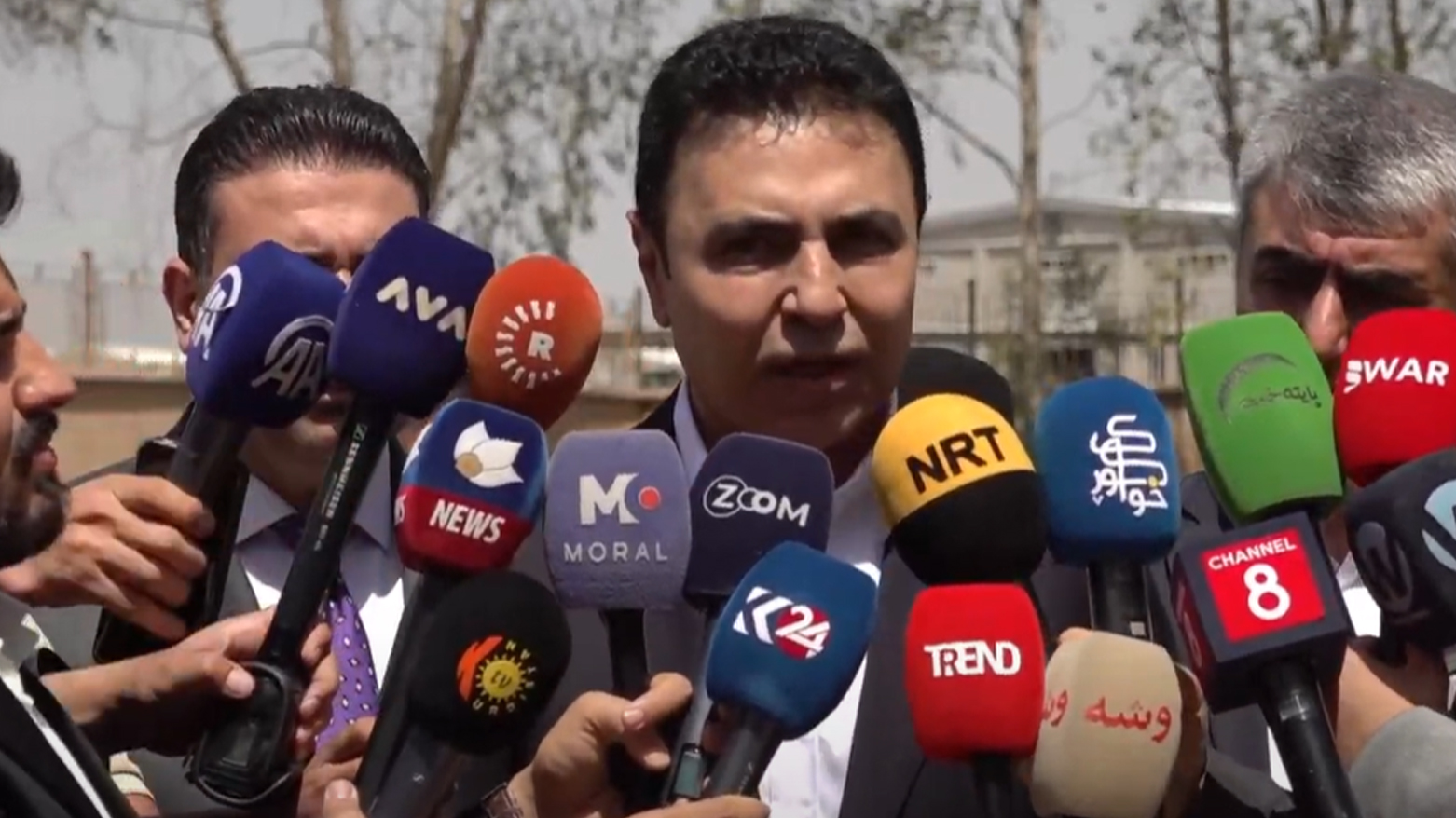Erbil Aligns with WHO in Flavored Vape Crackdown
Erbil Mayor Nabaz Abdulhamid announced the seizure of over 8,000 vapes as part of a wider crackdown aligned with WHO warnings on youth nicotine addiction. Over 50,000 devices have been confiscated as Erbil enforces a strict anti-vaping campaign to protect public health.

By Kamaran Aziz
ERBIL (Kurdistan24) – In a resolute move to enforce the city-wide ban on electronic cigarettes, Mayor of Erbil Central District Nabaz Abdulhamid announced on Monday the confiscation of over 8,000 vapes as part of a sustained campaign to cleanse the market of these products.
Speaking at a press conference on Monday, Mayor Abdulhamid confirmed that Erbil's enforcement teams have made significant progress in the implementation of the anti-vape directive. “Following the implementation of the vape ban, we have successfully launched a vigorous campaign to remove these products from the market,” he told reporters.
He revealed that in total, more than 50,000 vapes and electronic cigarette devices have been seized so far, including popular international brands such as “Brown.”
“The 8,000 vapes seized today are only part of the effort,” Abdulhamid emphasized. “This campaign will continue without any form of favoritism or discrimination.”
The mayor also stressed that enforcement would not be limited to confiscations. Legal measures are being taken against those found selling or smuggling electronic nicotine products into local markets. These include the closure of shops that fail to comply with the directive and the imposition of penalties against business owners who violate the public health ban.
Mayor Abdulhamid reiterated the administration’s commitment to protecting public health, underscoring that no leniency would be extended to violators. "We are determined to ensure that this law is applied uniformly and without exception," he concluded.
The crackdown comes amid growing global and regional concerns about the health risks associated with vaping, particularly among young people. The Kurdistan Regional Government has aligned itself with World Health Organization (WHO) guidelines, which warn that flavored vapes and e-cigarettes contribute to youth nicotine addiction and undermine tobacco control efforts.
In a forceful call to action issued on the occasion of World No Tobacco Day on May 31, the WHO urged all governments to ban flavored tobacco and nicotine products, warning that these attract youth and jeopardize decades of public health progress. WHO Director-General Dr. Tedros Adhanom Ghebreyesus emphasized, “Flavors are fueling a new wave of addiction, and should be banned.”
The Geneva-based health authority released a series of evidence-based reports highlighting the dangers posed by flavored products—including e-cigarettes, nicotine pouches, and hookahs—often marketed in flavors like menthol, bubble gum, and cotton candy. These products, WHO warns, are deliberately designed to appeal to younger audiences.
The WHO report titled Flavour Accessories in Tobacco Products Enhance Attractiveness and Appeal documents how the tobacco industry uses capsules, sprays, cards, and drops to flavor otherwise compliant products. This strategy circumvents existing bans and facilitates youth addiction.
According to WHO data, over 50 countries have banned flavored tobacco, and more than 40 prohibit the sale of e-cigarettes. Nations like Belgium, Denmark, and Lithuania are leading the way with stringent flavor accessory regulations. However, enforcement gaps remain due to loopholes in current laws.
WHO Director of Health Promotion Dr. Rüdiger Krech warned, “We are watching a generation get hooked on nicotine through gummy bear-flavoured pouches and rainbow-coloured vapes. This isn’t innovation—it’s manipulation.”
Experts stress that flavors are not benign. Many contain chemicals harmful for inhalation and contribute to increased product usage and addiction. Sweet and menthol flavors reduce irritation, making nicotine consumption more palatable and thus more addictive.
In response, WHO is calling for a ban on flavorings, filters, deceptive packaging, and digital marketing that targets youth. It urges countries to fulfill their obligations under the WHO Framework Convention on Tobacco Control.
As Erbil intensifies its crackdown, the city joins a global public health movement seeking to shield future generations from the devastating consequences of nicotine addiction. With smoking-related illnesses claiming nearly 8 million lives annually, public health authorities are advocating for bold legislative action and heightened public awareness to end the tobacco epidemic.